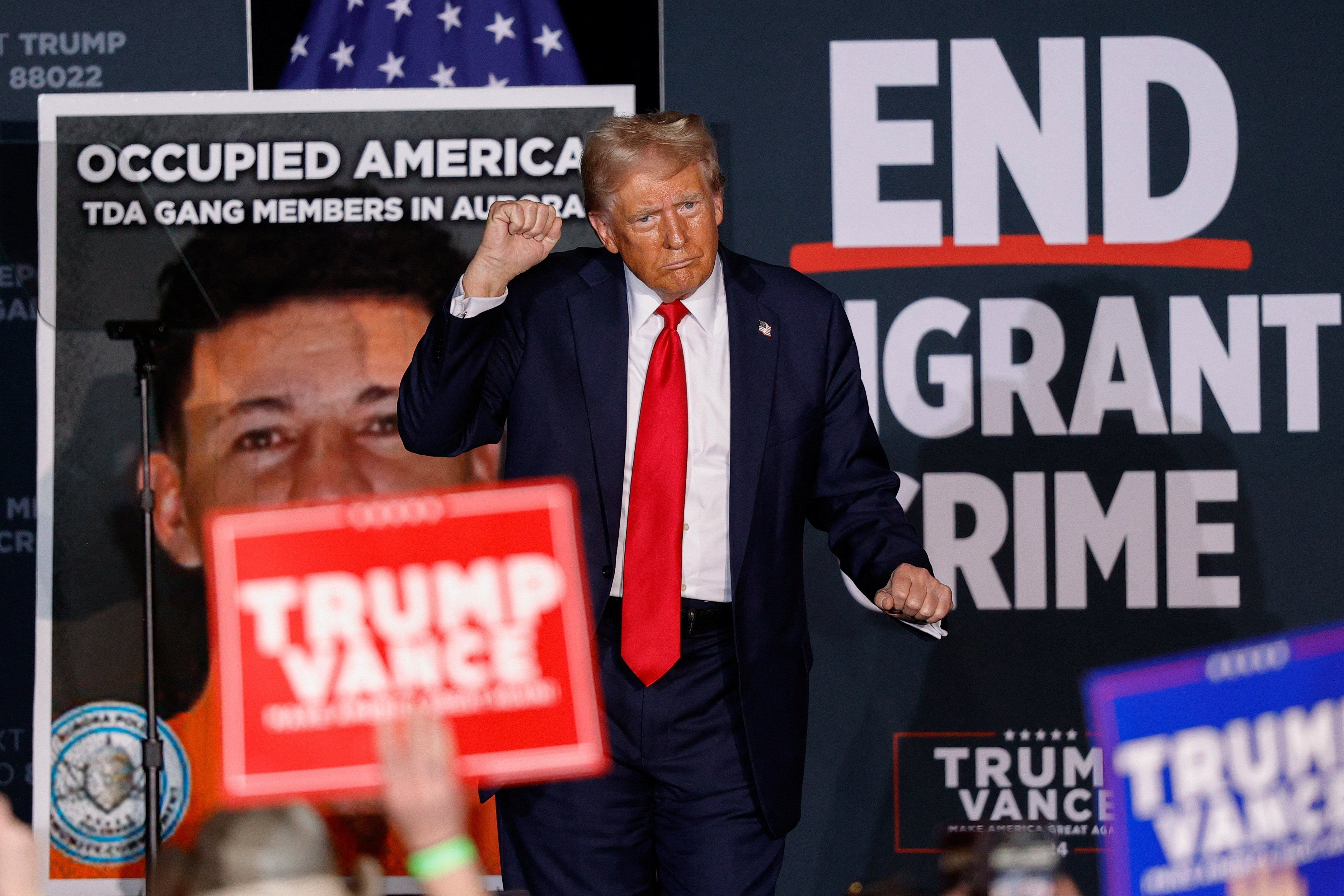Donald Trump has largely been able to outrun prosecutors, but his top aides and allies remain on the hook in five state cases involving their alleged attempts to help him overturn his 2020 election loss.
The president-elect will enter office next month with dozens of his alleged co-conspirators facing felony counts in Arizona and Georgia, where he's accused of directing a sweeping plot to subvert the results of that election, and prosecutors in Michigan, Nevada and Wisconsin have charged allies and Republican officials involved in a fake electors scheme, reported Politico.
“I don’t make decisions based on who is the president, I make decisions based on the rule of law," said Nevada attorney general Aaron Ford, a Democrat, "and these state electors, in our estimation, violated laws of the state of Nevada that are worthy of prosecution. This case is not going away.”
ALSO READ: Agenda 47: Alarm sounded about Trump’s dystopian plans for his second term
Trump is generally expected to use his pardon power to protect himself and his allies from federal prosecution, but that authority doesn't extend to state cases, so there's not much he can do to help 18 individuals, including his former chief of staff Mark Meadows, campaign attorney Rudy Giuliani and longtime adviser Boris Epshteyn with their indictments in Arizona.
“I have no intention of breaking that case up," said state attorney general Kris Mayes, also a Democrat. "I have no intention of dropping that case. A grand jury in the state of Arizona decided that these individuals who engaged in an attempt to overthrow our democracy in 2020 should be held accountable, so we won’t be cowed, we won’t be intimidated.”
The president-elect was charged in a similar scheme in Georgia, and while he's asked to have his charges dismissed or paused until his second term ends in 2029, but the case will quite possibly survive against his co-defendants – four of whom have already pleaded guilty – no matter what an appeals court rules on whether to disqualify Fulton County district attorney Fani Willis.
"The slow slog means that the case could suddenly shake loose in the middle of Trump’s second term, right around the time Arizona’s is heading for trial as well," Politico reported. "But it’s also possible that the courts will conclude it is too much of a morass to advance against any of the remaining defendants. The appeals court is currently weighing Trump’s motion to drop the charges against him, and it must separately decide how it will handle the case if Trump is removed from it in the short-term."
Three attorneys – Mike Roman, Kenneth Chesebro and James Troupis – face charges in Wisconsin for their roles in the fake electors scheme related to the Jan. 6 insurrection, and Troupis is moving to have his charges dismissed because, he argues, his work on election challenges stood apart from work by "Team Giuliani" to sow doubt in the election results.
“As Team Giuliani spread claims of fraud, Team Normal did not embrace them, or expound on them,” Tropuis wrote in a court filing.
A case against six alleged Nevada false electors has already been thrown out by a Las Vegas-area judge who said the case should have been brought in Carson City, and the state attorney general is appealing that ruling and preparing to file new charges later this month to get ahead of the statute of limitations.
“These six fake electors attempted to undermine — and, in fact, did undermine — the integrity of our elections,” Ford said. “They also violated state law, criminal laws, and they will be prosecuted pursuant to the justice that is required in circumstances like this.”
Charges have been dropped against one of the 16 false electors charged in Michigan, after he entered a cooperation agreement with attorney general Dana Nessel’s office, whose investigators consider Trump to be an unindicted co-conspirator.
